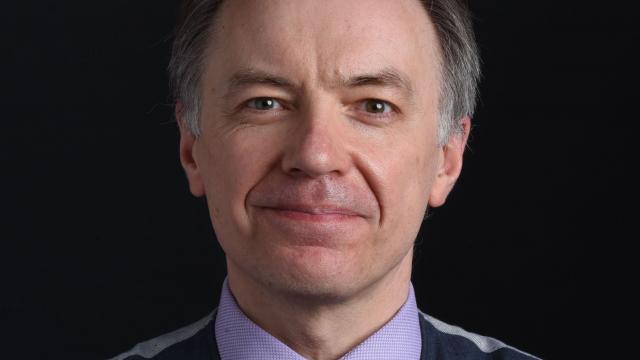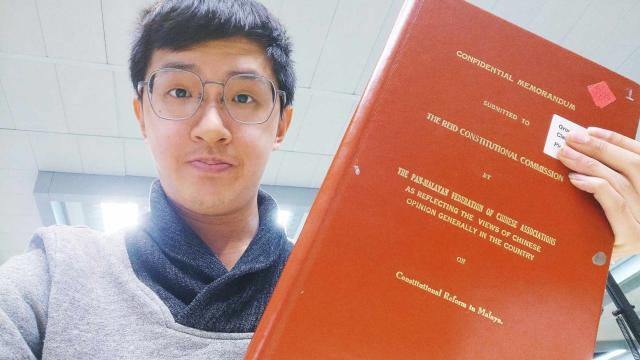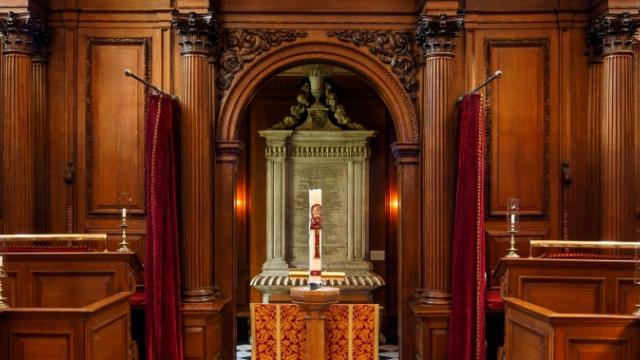
Welcome to our blog, which focuses on some of the major issues raised by our speakers with a little bit of contextualisation from us.
Scroll on to read about:
- 25 years on from the Belfast/Good Friday Agreement: achievements, successes and limitations
- The Northern Ireland Protocol and Windsor Framework
25 years on: what did the Belfast/Good Friday Agreement achieve? 09.06.23
This April marked 25 years since the historic signing of the 1998 Good Friday Agreement in Belfast, generally agreed as the end of over three decades of conflict in Northern Ireland. Today – in the first of three of blogs – we’re taking a look at its successes.
The constitutional benefits seem obvious. The Agreement managed to find a way to temporarily settle two directly opposed constitutional desires. It was equally legitimate for the people of the region to want a future within the United Kingdom or to have a united Ireland. It removed the ability of one ‘side’ to dominate the other by abolishing majoritarianism and establishing power-sharing and cross-community consent mechanisms.
But the constitutional element was only ever one problem ‘solved’, or at least temporarily thrown into the long grass. Questions of justice, policing, and human rights were also part of the Agreement, setting in train processes that transformed the structures of power in the region. Moreover, the Agreement itself fundamentally realigned political relations across these islands. It developed new cross-border institutions with the South, and the Republic held its own referendum to ensure that the contentious articles within the 1937 Constitution were removed to satisfy Unionist demands.
Yet these specific successes are often jumped over as many rush towards a more singular description of what the Agreement achieved: the ending of widespread violence that claimed over 3,500 lives between 1969 and 1998. This tends to be the most commonly cited success of the Agreement and we have frequently heard it on this series. Former Taoiseach Bertie Ahern and the current UUP leader Doug Beattie both praised the Agreement for putting an end to the ‘killing and mayhem’. David Lidington, former Conservative Minister and Shadow Northern Ireland Minister, shared his memory of being equipped with a mirror on a telescopic pole on his first day as an MP in 1992 to check under his car for bombs. He stressed the importance of the major paramilitary groups disbanding their campaigns and celebrated that there is now an entire generation of young people who have no direct memories of such violence. Lord Robin Eames, former Primate of All Ireland and Archbishop of Derry, commented that young people want to see history confined to books. Their education should move beyond the past and instead be forward-looking, with major issues on the agenda including climate change, healthcare, and what lies ahead for Europe. Although isolated moments of violence still occur, and some of the worst atrocities occurred after the Agreement was signed, it is clear Northern Ireland has come a long way since the darkest days of the Troubles.
Ian Marshall OBE, farmer and UUP politician,emphasised how he had grown up in a ‘separated, segregated society’, where people attended Protestant or Catholic schools, football clubs, and pubs. Now, workplaces and education are more mixed. There has been significant growth in non-unionist and non-nationalist affiliations. As of March 2023, ‘non-aligned voters’ are now the largest political category in the region according to the Belfast Telegraph. The electoral implications of this were demonstrated by the Alliance Party’s success in the May 2022 Assembly elections, becoming the third largest party in Stormont. For Lisa Claire Whitten, politics research fellow at Queen’s University Belfast, the only way for Northern Ireland to truly settle into ‘normal’ politics is for this non-aligned middle-ground to keep growing. Her prediction appeared to be correct in the recent local elections, when Alliance increased its representation by 67 seats, seeing an increase of 14. But firmly aligned parties also did well, complicating this picture.
In our next blog we consider what factors explain the Belfast/Good Friday Agreement’s success. Why did it endure when so many attempts before it had failed? What domestic and international factors contributed to its success and relative longevity?
Is the Northern Ireland Protocol finally resolved? 28.03.23
At the end of February, UK Prime Minister Rishi Sunak and President of the EU Commission Ursula von der Leyen announced the ‘Windsor Framework’ signed by the UK government and EU to resolve the dispute over the Northern Ireland Protocol. The new deal supposedly reduces the current bureaucracy over trade by introducing green and red lanes. On the issue of consent, it offers a ‘Stormont brake’ to block new EU legislation should Stormont MLAs have concerns about EU ‘interference’. Is the most thorny issue of Brexit now resolved? But if the DUP continue to say no to the Framework and refuse to re-enter Stormont, what is the future for governance in the region? Will their protest invite further scrutiny of the Good Friday Agreement in its current form?
We have no crystal ball, but let’s see what insights our past conversations can offer.
In November 2021, as tensions ratcheted up following the UK government’s threats to deploy Article 16 of the Protocol, former Taoiseach John Bruton looked to the past to argue that we need to see such tensions between the UK and the EU within the historical context of the British government’s 500-year-old ‘grand strategy’ of sewing 'division' in Europe and undermining unity. Clearly under Sunak a new conciliatory approach is in vogue and SDLP MP Claire Hanna predicted that the UK government would come to regret politicising the Protocol for the sake of their 'hard Brexit' vision. It is difficult to disagree with this view, not least due to the many years parties in Northern Ireland and the rest of the UK have had to shape their respective interpretations of the Protocol. For hardline Unionists, only abolition of – or substantial reform to – the Protocol would do and the Windsor Framework might be perceived as Protocol Version 2.0—a view not too far away from that held by hardline ERG Conservatives mainly preoccupied with EU ‘interference’. It is a hard sell for Sunak to suggest otherwise given the messages that have been spun in the mechanism’s name over several years.
But focusing on the DUP or Tories is only part of the picture. Tony Connelly, RTÉ Europe Editor, stressed that polling conducted just before the May elections found that for most voters in Northern Ireland, the Protocol wasn’t the most pressing issue. Most were more concerned with the cost-of-living crisis, healthcare, housing, and recovering from the pandemic—serious issues that have become more serious in light of the lack of regional governance. We have yet to see how a nationalist-led Executive will handle these issues and cannot do so until the lights are turned on again at Stormont.
Professor Kalypso Nicolaïdes reminded us that while important, the contests over the Protocol were fundamentally a distraction from serious geopolitical issues that required UK–EU alignment. Her comments were sadly proved prescient with Russia’s invasion of Ukraine. The impetus to focus on foreign affairs became greater as time went on and David O’Sullivan, International Special Envoy for the Implementation of EU Sanctions, suggested that the UK government should want to get a deal done quickly so they could move onto the ‘bigger problems’ facing Europe as a whole. Our speakers appear to have been proved right, with Von der Leyen and Sunak eager to mention their ‘strong cooperation’ on Ukraine and that they were 'standing shoulder to shoulder’.
Gone from February’s press conference announcing the framework was any hint of the war rhetoric of the UK being held hostage to the EU, or suggestion that British sovereignty was under threat, that had become typical of Conservative messaging on Brexit. Understanding, listening, and courageous leadership were needed to bring a deal together—sentiments which have been repeated time and again in our series. Lord Robin Eames, former Primate of All Ireland and Archbishop of Armagh, spoke of the need for brave leadership in dealing with issues on the island of Ireland, particularly leaders who are willing to put what is right above their own careers; former Taoiseach Bertie Ahern insisted ‘goodwill’ was the solution to the Protocol itself. But our speakers had other views as well. Lucinda Creighton, former Irish Minister of State for European Affairs, insisted that ‘great statesmen’ weren’t needed to resolve the dispute. In Creighton’s view, the problems of the Protocol were less complex than those of the Good Friday Agreement and just needed politicians to be ‘sensible’.
What could the Windsor Framework mean for Northern Ireland and the Republic? Naturally, our speakers have different views. The Belfast Telegraph's Sam McBride argued that closer alignment with the EU would be beneficial to unionism because it would remove the disagreements over the Protocol and take the wind out of the campaign for unification. Northern Ireland voted against Brexit in 2016 and a key argument for reunification in recent years has been the option to rejoin the EU. In offering Northern Ireland access to both EU and UK markets, the Windsor Framework brings Northern Ireland into much closer alignment with the EU and Ireland, potentially proving McBride right. If the Assembly fails to get up and running however, it is likely more questions will be raised about the feasibility of the region within the UK. Northern Ireland cannot be managed from London indefinitely; ironically, if Sir Jeffrey Donaldson and the DUP refuse to allow devolution to function, it only makes Northern Ireland more unique and isolated from the rest of the UK.
What about the region's grassroots? Even if the DUP were to have a volte face and Unionism in general agreed to the deal with further changes, can it be successfully sold to supporters who have been ‘led up a hill’ (in David O’Sullivan’s words) in strong opposition to the entire Protocol? Freya McClements (Northern Editor, Irish Times) and Lisa Claire Whitten (QUB politics research fellow) noted that certain narratives, many of them misleading, about the Good Friday Agreement and Northern Ireland’s constitutional position have become deeply embedded in people’s understanding of the issues surrounding the Protocol. Separating its practical operation from the representations spun in its name is a challenge no Windsor Framework can fix.
Whatever happens in the coming weeks, it is hard to see the new deal as anything but a significant step forward in UK-EU relations and one that reflects a greater sensitivity to Northern Ireland from the UK government that has been seen in recent years. But the DUP’s customary ‘No’ stance remains highly problematic. Stability in Northern Ireland’s politics does not look at all certain. What the next few months will look like given the upcoming 25th anniversary of the Good Friday Agreement and incoming marching season will be an important indicator of what the grassroots feel about an issue that doesn’t yet seem quite resolved.




